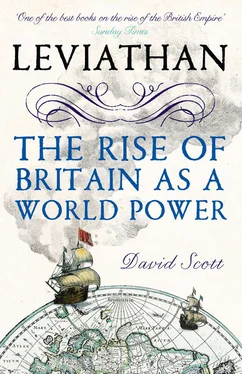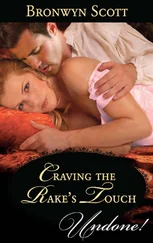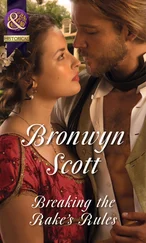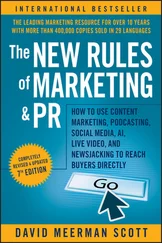This unavoidable Anglocentrism is also apparent in the period I have chosen to cover – that is, from 1485 to 1783. Henry Tudor’s victory at Bosworth in 1485 was, or would become, an event of immense significance in English history, but it looks rather less of a turning-point when viewed from a Scottish or Irish perspective. The capacity of the English to throw their weight around in the British Isles was unusually weak at the end of the fifteenth century – a legacy of the Wars of the Roses. Henry’s seizure of the crown took some time to disturb the pattern of English rule in Ireland, and longer still to make any great impact on the Stuart kingdom of Scotland. By contrast, the cataclysm of the American War of Independence, with which this book ends, reverberated immediately and powerfully across the British Isles. Yet although Bosworth itself was more of an Anglo-French event than a British or Irish one, the year 1485 is of larger significance than simply as a boundary marker between the Plantagenets and the Tudors. Henry VII’s reign (1485–1509), it is now recognised, did much to reshape and reinvigorate the English monarchy – which was, after all, the most powerful political institution in the British Isles. Moreover, the decades around 1500 have often been taken to mark the end of the Middle Ages in Britain and the beginning of a new era, the ‘early modern period’. Although historians (myself included) are vague about the timing and nature of this transition, the early modern period is generally assumed to have included the sixteenth and seventeenth centuries, and some, or most, of the eighteenth century – in other words, roughly the period covered by this book.
Writing history entails the risk of imposing order and meaning where none existed. Whether the early modern period has themes and trends that are peculiarly its own, or is merely a convenient label for the centuries between the end of the Middle Ages and the first stirrings of the industrial revolution, is too large a question for a preface, and too abstract for a narrative history. What is certainly true is that this period covers some very important historical territory for a proper understanding of modern Britain. The Reformation in England and Scotland in the sixteenth century wrought perhaps the most profound and enduring transformation in British and Irish society – for Catholics as well as Protestants – of anything that has happened in these islands since the Norman Conquest. The consequences of Britain’s traumatic break with medieval Christendom are still with us today, as are those of another innovation closely associated with the Reformation, and the early modern period more generally: printing. Britain’s first printing press was set up by William Caxton in 1476. The print revolution changed the way people read and wrote, thought and communicated, and how they perceived their nation and their relationship to the crown. Print was a vital medium by which London in particular, but also Edinburgh and Dublin, extended their authority and influence across the British Isles to create at least some of the attributes of a single political and cultural system. The partial incorporation of Ireland and Scotland by a London-dominated British state took place largely during the early modern period. And running through this story of the forging of modern Britain are the plot-lines, the dramatic twists and the heroes and villains of a true epic: the rise and fall of the ‘first’ British empire across the Atlantic.
These themes will carry the burden of my story, but there are also significant subplots that I thought worth unravelling. The development of representative institutions in the British Atlantic; the deepening and widening commitment to ideas of freedom and the rule of law (which ultimately enabled the colonial American cubs to defy the parental British lion); the consolidation of a political culture built around ideas of rights and the answerability of monarchs to their subjects – a process that was fitful, occasionally bloody, and at various times highly uncertain of outcome – and the emergence, by the late seventeenth century, of a degree of religious tolerance that had no parallel in any major European state.
Yet if the history of early modern Britain is not devoid of overarching themes, nor is it without deep fissures. Two are central to my narrative. The first and most obvious is the Reformation of the sixteenth century and, in particular, the way Protestantism altered how people in Britain related to the rest of Europe. From the 1550s there was a growing number of British Protestants who recognised no greater cause than fighting alongside their co-religionists in Europe in the great cosmic struggle against ‘popery’ – Catholicism understood as political and spiritual tyranny. Mere national security by means of a strong navy was the very least of their demands. They continually urged their monarchs to send armies to the Continent, and fleets to the New World, to uphold the Protestant cause. A few would be bolder still, and embrace the idea of the new and massively enlarged state that the British would have to build if they were properly to challenge the might of Catholic Europe.
The second great fissure in the history of early modern Britain occurred in the 1640s, and would see precisely that: the construction of a monstrous, militaristic state. And yet the circumstances surrounding the birth of this Leviathan would frustrate the dreams of a Protestant crusade abroad for half a century. In the end it would require a Dutch invasion to put Britain firmly and unstoppably on the path to global ascendancy. That ascendancy, both real and imagined, would frequently be challenged by the Dutch themselves, the French, the Spanish, and by Britain’s own colonial subjects. What was special about the state that emerged in Britain in the mid-seventeenth century was not so much its power as its resilience. One of my aims has been to explain how the growth of such a state enabled the British not simply to win an empire, but to survive and indeed flourish after losing more than half of it – a setback that would have overwhelmed a lesser imperial power.
There are many ways of telling this story of wars and empire, and of the fears and dreams that made them. I have chosen to look more closely at those pursuing and exercising power than at the instruments and victims of their ambition. If this too is a foible on my part, it also has some grounding in historical fact. In our democratic society, the wishes and opinions of the majority are constitutive of the political order. Until the 1800s, however, democracy was merely a polite word for mob rule, and barely a thought was given to empowering women. The social, economic and intellectual structures that prevailed in early modern Britain allowed small groups of men to exercise a disproportionately large influence over the affairs of their communities. This book reflects that reality. It is about monarchs and their courts; about Parliament-men and religious reformers; and about those who observed and anatomised these worlds, or whose convictions and learning transformed them. The constraints of time and space inevitably make this a highly select cast. I am particularly conscious that I all but ignore, for example, Britain’s great experimental scientists and inventors of the seventeenth and eighteenth centuries. Men such as John Harrison (1693–1776), whose ‘sea clock’ for determining longitude, first successfully tested in 1761, ensured that the Royal George was far less likely to run aground than its French or Spanish rivals. I also have relatively little to say about the lives of ordinary men and women, or the squalor and deprivation that often accompanied them. I take it largely for granted that a society with rudimentary sewerage and welfare systems was disease-ridden and very hard on the poor who made up the vast majority of the population.
Читать дальше












